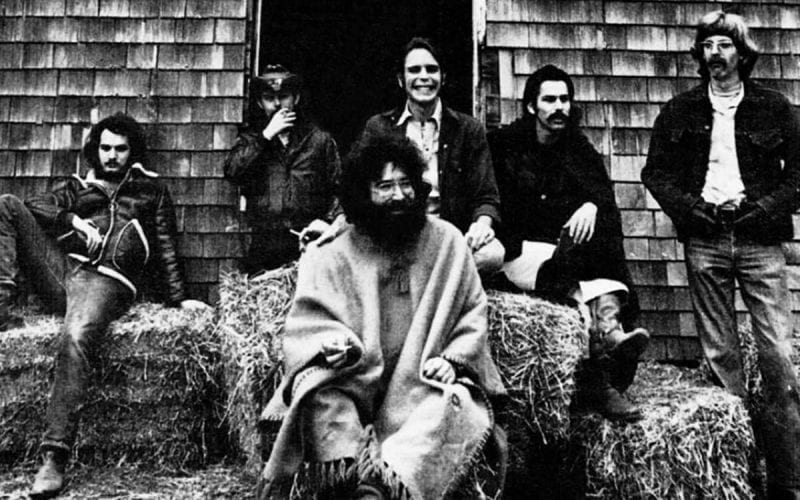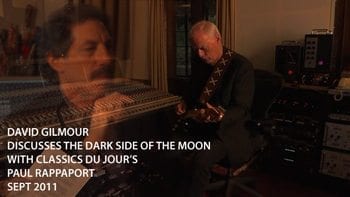The newly acquiring of WMG by Len Blavatnik’s Access Industries could turn out to be something truly momentous.
In this acquisition, WMG will return to a privately held company. This may not only be a great thing for WMG, but it may well also pave the way for a healthy future of the entire music industry.
Let me tell you why.
Wall Street and art don’t mix well. The need to make the quarterly and yearly numbers to keep stockholders happy puts terrible pressure on the publicly held record labels and makes for a lot of bad decisions for both the artists and fans alike.
When I first got into the record industry in 1969 it was a glorious thing. The accent was on the music and the artists, not the money. Of course, we were in the business to make money but that came second to massaging the art and providing a safe haven for artists to work in.
On top of that, we were ultra careful in how we promoted and marketed artists to ensure lengthy careers. And, we also made sure the fans felt like they were being taken care of—not being “taken advantage of,” as is the case too often these days.
The music business from 1970 to about 1978 was essentially a big party (please go back to the beginning of my blog and read “The Fertile Crescent—Lucky Times In The USA”). The big music explosion was just maturing as an actual business. Labels couldn’t sign acts fast enough and we could barely keep up with the records we were releasing. It was a great time for art in general, and the music scene was hitting on all cylinders with wonderful artists from all genres of music—from Bob Dylan, Jimi Hendrix, and The Stones, to Bruce Springsteen and Billy Joel, to Miles Davis, to Johnny Cash and Willie Nelson, to Barbara Streisand, Neil Diamond, and Johnny Mathis, and tons more. There was an air of real excitement and continual new discovery.
As president of Columbia Records, Clive Davis was constantly stressing the need for us to understand and get close to the artists and their fans. Bands were given time to develop naturally and over a long period of time. That meant no rushing albums out before they were as good as they could be and always being careful with our price points. Indeed, at that time we were experimenting with certain sales programs and special music samplers along with creative marketing strategies to try and get as many people interested our music as possible.
Around the middle of the 70’s it became apparent that the music companies were going to be able to account for some REAL money. It was at that time that we became more like a business and less like a giant musical party.
All was good through the 80’s even though we watched our bottom line more carefully and became more fiscally responsible. We were making even bigger numbers as the result of the introduction of the CD. People were buying their original music collections all over again and discovering new artists while spending time in the record stores.
But then the industry became greedy. And, this was especially seen at the publicly held record labels. The parent companies of these labels began to put huge pressure on them to make the numbers they needed to complete a final larger profit picture for their stock holders at the end of each year.
That meant taking short cuts and thinking about the money first and the artists and the music second. And that’s when the music business became the “record selling” business. And, that my friends, was the beginning of the end. The stockholders were the ones we had to make happy—not the fans.
Here are some sad examples:
Back in the day, we were careful not to release too many singles from one album or follow up a successful album too quickly for fear of burning out an artist’s career too quickly.
I will not be naming names here, as there is no reason to be hurtful to make a point.
I remember one superstar group that had become so huge they really should have been given a rest, in the name of “absence makes the heart grow fonder.” But the group had some new material and could make a follow up album pretty quickly. They were encouraged to do so by their record label which was feeling this new kind of pressure from their parent company. Well, that album got released and it sold well enough, but the push-back from radio due to overkill was relentless. In fact, radio began having “No (insert artist name here) Weekends! Guaranteeing that you would not hear that particular band played all weekend long on their radio station. How awful. It killed the band’s career completely. The bigger tragedy is, that they were so talented we’ll never know or enjoy what they might have become over time if the artistic cards had been played correctly, instead of the band becoming victim to a crass bottom line decision.
In another case, one label released so many singles off one superstar’s album that the artist’s welcome at radio was burned in much the same way. That artist went on to do some great things, but never had nearly the same support from radio again—and, in the end, continually sold less albums upon each new release as a result.
I think the worst mistake of all was that the industry kept upping the price of the CD not based on anything other than the fact that more profit was being demanded of them. Sure music is worth something substantial but $18.98 list price? Are you kidding me??!! No wonder people ran for the hills. I know marketing costs went up a bit but nothing that would trigger a spike like that. This number was based solely on finding the threshold of what the public would stand. The notion at the time was that we’d rather sell to less people for more money if we could still make the quarterly profit we needed. One company would up the number of a frontline release and then everyone else would follow suit, just seeing how much people would actually pay.
This is Wall Street talking, not music people looking out for their artists’ careers and their fans.
One other name that is worth mentioning other than Clive Davis, is Don Ienner. When he came to Columbia to become President of the label after having worked for Clive, he was steeped in the art of taking care of artists’ careers long term. Indeed, the deal with Jeff Buckley was struck for less money than every other label was offering with the promise that Jeff would be allowed to develop organically and not be immediately rushed into the recording studio. A healthy relationship between artist and record label proved to make some historically great music. As a result, we sold plenty enough, and even though Jeff had an untimely passing, people still revere his music to this day. That kind of true magic happens a lot less when things are forced in the name of the almighty dollar.
Most of that kind of long-range thinking is all gone now. Everything has been forced to immediate bottom line strategy. I should point out in some defense, that the industry has really taken it on the chin with all of the illegal downloading. But I really believe in my heart of hearts, that if CDs had been sold for a lot less, a lot more people would have bought them. And kids could have afforded them so it wouldn’t have been such a stretch convincing them that there was no need to steal the music. Even now, buying a digital album release for $14.00, in my opinion, is too much money. Less people buy, less word of mouth is established, so less interest in general takes place.
Not that long ago I saw an artist finally break big, and shortly after, one company was shoving every piece of product they could into the market place as fast as they could–a live album, special EPs, etc. etc. It looked like a desperate move and it certainly flooded the market with way too much from one artist way too fast. I mean, how much can one fan buy? Again, this is a classic case of panic management—not good for the artist, fan, and not good for the long term business of the label either, because they burn the artist’s career out overnight. This is Wall Street pressure to make the yearly numbers when in a particular year that label’s overall release schedule was low. With less albums coming out the numbers had to be made up somehow, right? And, they’ll worry about next year, next year—and continue to make more panic moves.
The music business is an up and down kind of deal. You never know how big an artist will become, or how successful their new album will be–and it can be a different story with each release. Also, you never know when an artist’s album will be finished so, indeed, your release schedules change from year to year. To continually count on making more money than you did the year before is a fallacy unless you make up other ways to keep the numbers coming.
The Stock Market demands its numbers regardless of any label’s release schedule. Some businesses can compensate more easily than others. “Oh, were not selling as many beans this year? Let’s introduce a new cereal.” Products like cars, food, etc., are test marketed before release so there is some idea of what kind of sales to expect.
Not so in the music business. When it comes to creating art and music, it’s way more ethereal. Lady Gaga could have just as easily been laughed at instead of being endeared by the public and becoming very successful. No one knows for sure until the music is out how people will react to it and to the artist. And as much as some industry leaders like to think they know it all, and can predict the outcome, the truth is, to quote screenwriter William Goldman, “Nobody knows anything.”
With a privately held company that kind of pressure to make quarterly and yearly numbers is lessoned. That doesn’t mean that some pressure won’t be felt at all, but a privately held company is allowed to breathe in a different way. If they are smart, during big years, they can save some money to keep everything continually running smooth during the lean ones. They can run their business without making panic decisions. Their employees can worry less about the possibility of losing their jobs so the vibe at the company can always be up and positive, making for a great creative atmosphere.
Warner music was built to greatness as a private company. It had it’s own family feel and really took off in the late 60’s headed by the legendary Mo Austin. It was the label that most artists wanted to be signed to because of the creative freedom it gave them and because of the warm and friendly atmosphere one felt when visiting their offices. In 1989 they went public and shortly after became beholden to the Stock Market like every other company. The dumbest thing they ever did was retire Mo—even his competitors loved him.
Now they have a chance to “get back to the garden,” so to speak. The more correct artistic decisions they make, the healthier their label will become. Let’s see who they put in charge—let’s see if they can rekindle the old magic. They have a chance to do it right.
If they can show a better business model being a private company once again, I predict this move will be the wave of the future for the entire music industry!
Keep rockin’ kids!
Rap~








